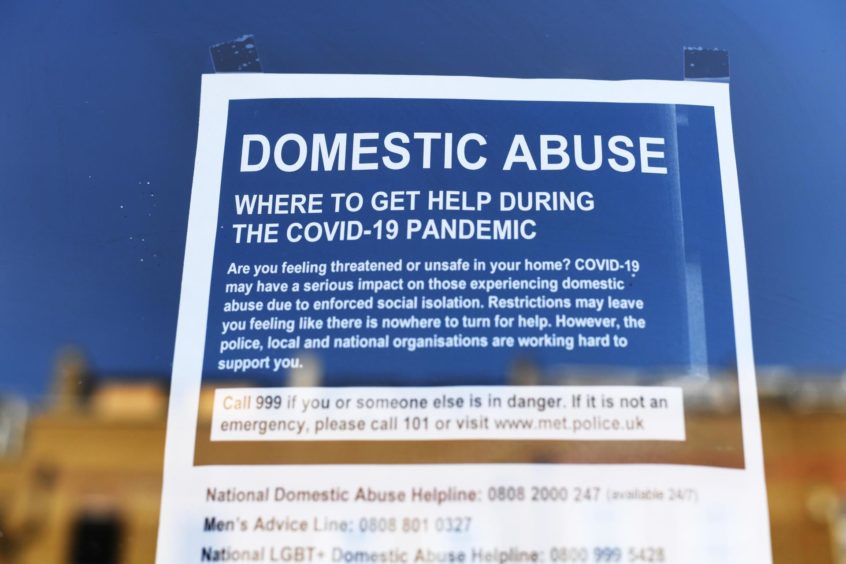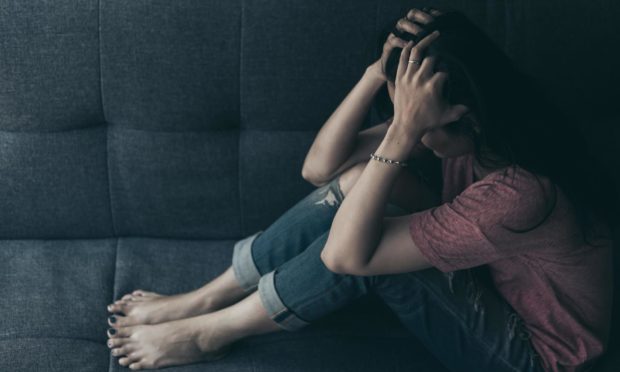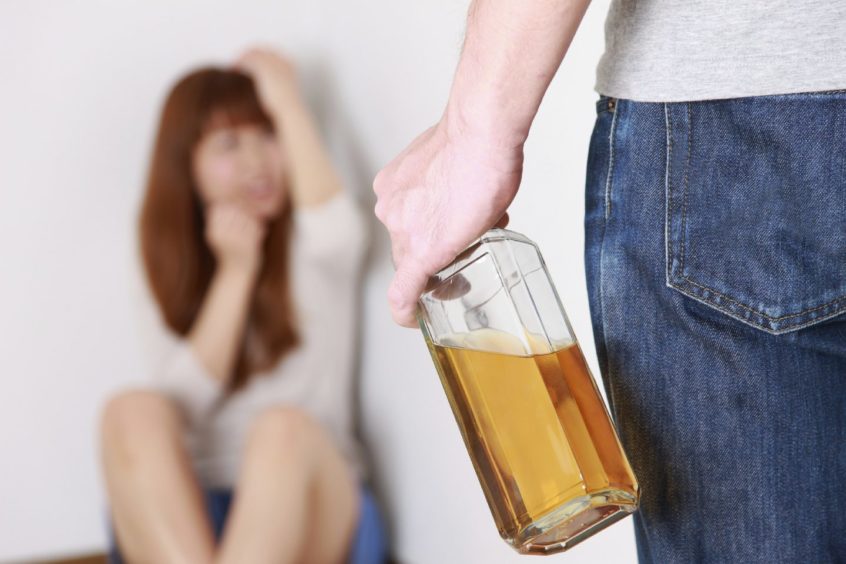The number of Fife women and children fleeing domestic abuse has soared during lockdown, stark new figures have shown.
Support agencies are dealing with a huge increase in referrals during a time of heightened risk for victims.
Women’s safety has been in the spotlight over the last week in light of Sarah Everard’s death in London.
Much of the discussions have centred on violence and harassment from strangers in public.
But the latest Fife figures have thrown into sharp focus the dangers faced by hundreds of women in their own homes.
Fife Women’s Aid has seen its waiting list rocket by 77% during the pandemic.
And, the number of children and young people receiving its services has more than doubled.

All agencies in the region are dealing with similar numbers, with Shakti Women’s Aid – which helps black minority ethnic women and children – reporting a 75% rise in referrals.
Meanwhile, more than a quarter of Fife Council’s housing referrals were due to relationship breakdowns, violence and abuse.
The figures relate to the three months between October and December compared to the same period in 2019.
‘Increased risks’
Covid-19 restrictions have “significantly impacted” women and children who already live with domestic abuse.
Sheila Noble, from the Fife Violence Against Women Partnership (FVAWP), said lockdown had created “an environment where risks are heightened”.
“There are increased risks associated with controlling, coercive and abusive behaviour in lockdown, both in terms of opportunity to abuse and access to support,” she said.
The restrictions mean partners are forced to spend more time together, particularly if they are self-isolating.
This, along with increased drinking at home, can add to existing relationship problems, she said.
Many women report feeling trapped and unable to leave and lockdown is causing difficulties in accessing support services.
Pressures before lockdown
Services were under pressure even before lockdown.
The FVAWP annual report for 2019/20 shows police in Fife recorded more than 4,500 incidents against women.
The reports include 1,085 crimes of indecency, which include sexual assault and rape.
Meanwhile, Fife Women’s Aid received 1,600 referrals and dealt with 245 requests for refuge
It also supported 435 children and young people.
A weapon was used in a third of the most severe cases.
There is an anxiety across some services about the size of their waiting lists.”
Sheila Noble.
In September, the Scottish Government produced new guidance to deal with the increased risk and services are working together to respond to the need.
But while crisis support is still available, some women are struggling without face-to-face support.
Ms Noble said many found it difficult to talk to services online from their own homes with their abuser nearby.
However, the key message is help is there for anyone who needs it.
“Services are working very flexibly to respond to the needs of victims and survivors but there is an anxiety across some services about the size of their waiting lists,” Ms Noble said.
Tackling the issue
Work is continuing in the community to tackle the issue and reverse the trend.
It includes working with schools to raise awareness of gender-based violence, positive relationships and consent.
Even the youngest children are involved thanks to a gender equal play pilot at Duloch Nursery in Dunfermline.
This can address stereotypes by changing the way people think of certain toys and books as being just for boys or girls.
It is hoped this will change the way children think about their futures.
Members of the public will also be taught about the role they can play in tackling violence against women.
Ms Noble said is was also important that justice against perpetrators was “robust and effective”
Support for victims
Police support the approaches taken by anti-violence charities.
A spokesperson said: “Police Scotland will proactively target perpetrators and support victims to prevent domestic abuse from damaging the lives of victims and their families.”
Anyone experiencing abuse can contact the Fife Domestic Abuse Helpline on 0800 027 1234.
Further information and useful links can be found on the Fife Council website


